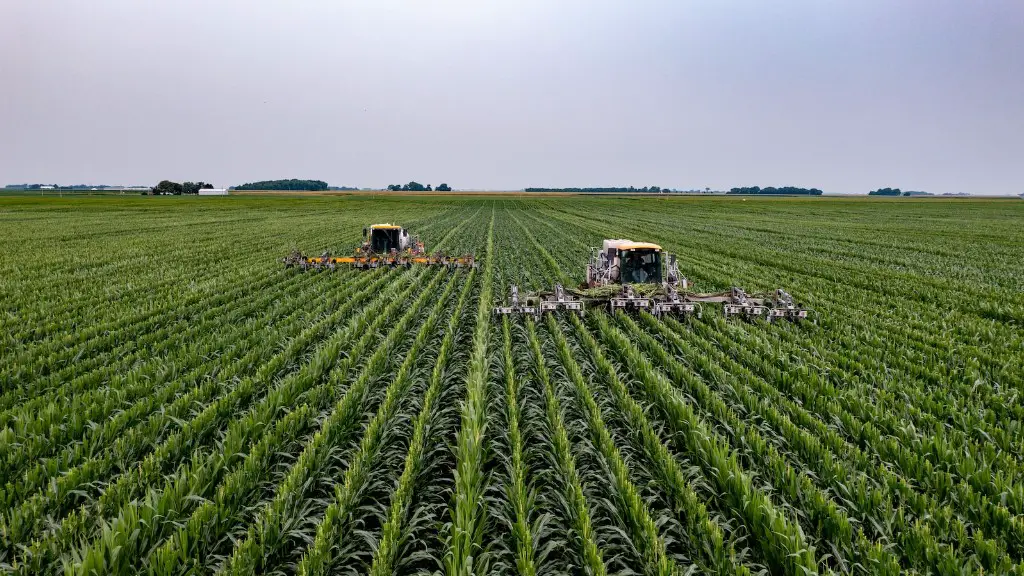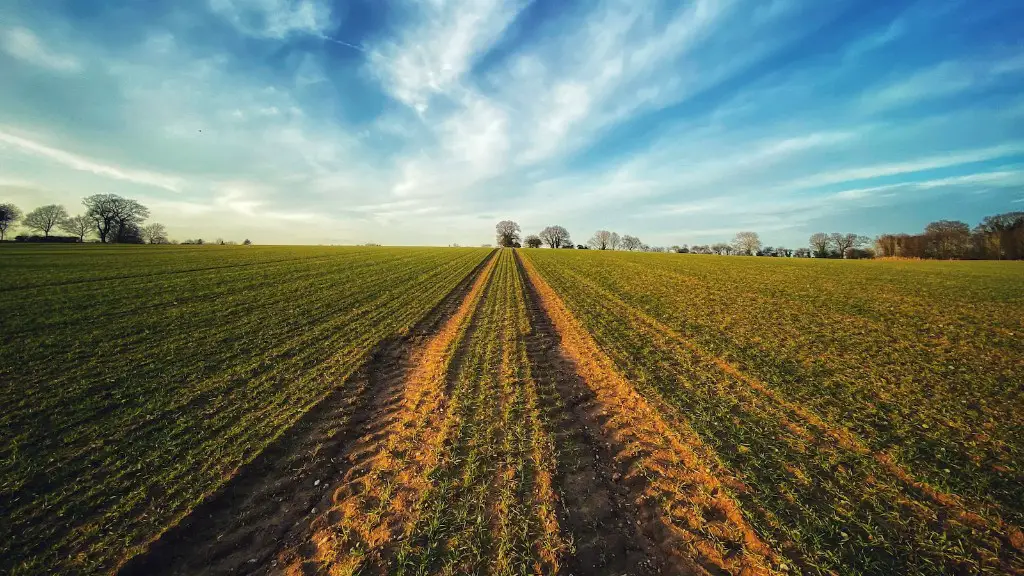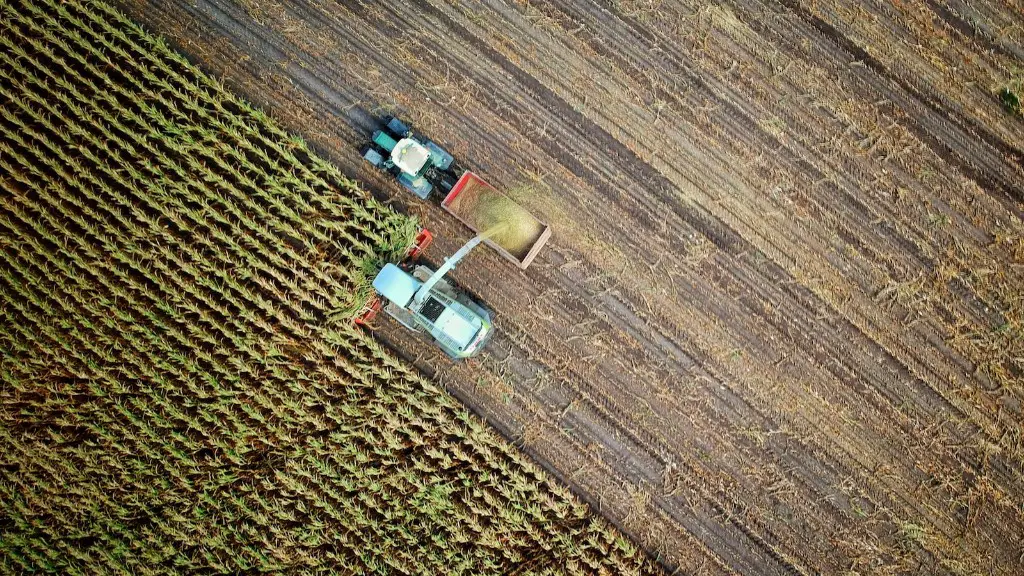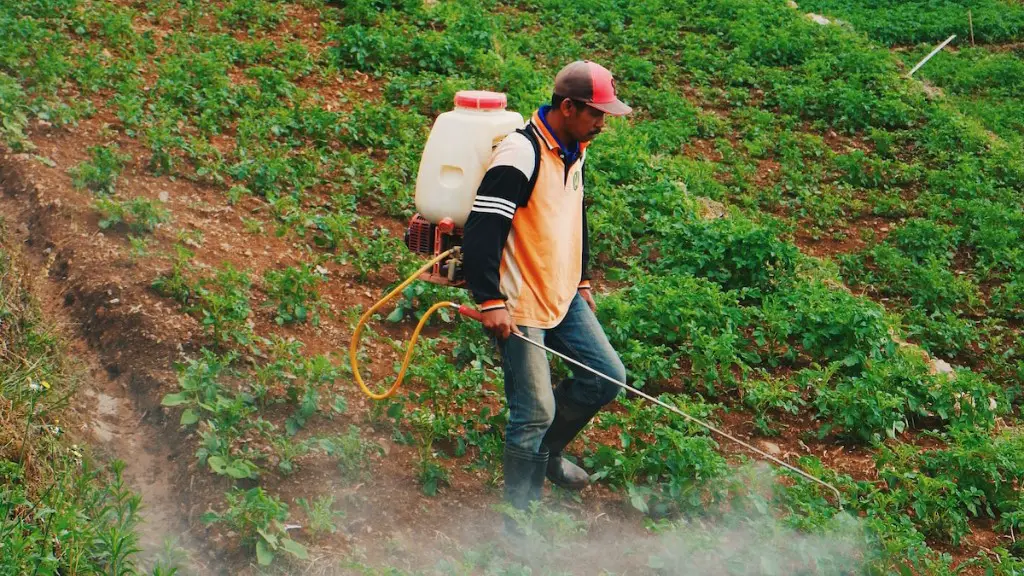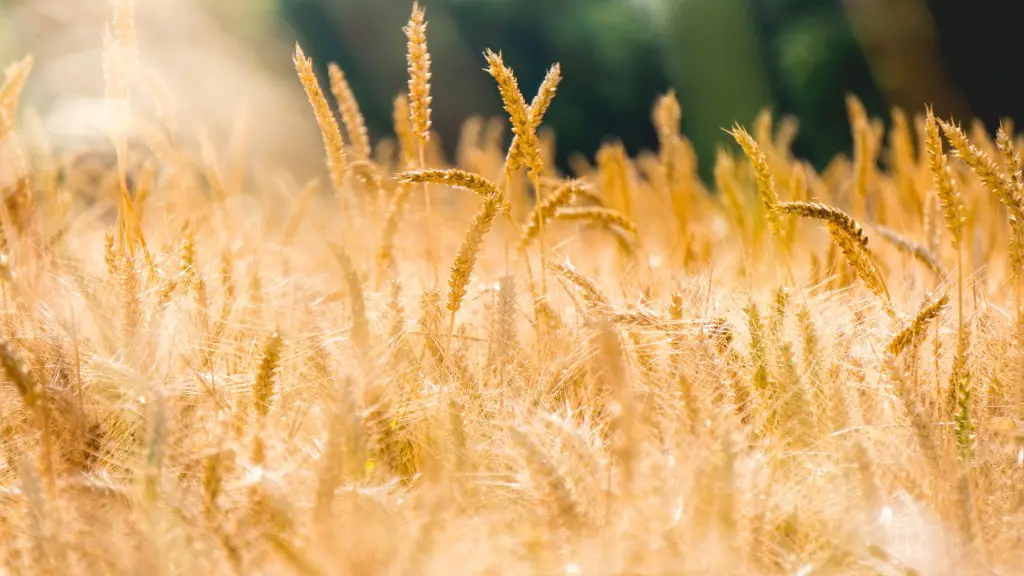Manuring in agriculture is the process of adding organic matter to soil, which can improve the soil’s fertility and structure. Manures can be either solid or liquid, and can come from a variety of sources, including plants, animals, and compost. While synthetic fertilizers have become increasingly popular in recent years, manuring is still an important part of sustainable agriculture.
Manuring in agriculture is the process of adding organic matter to the soil. This can be done through the addition of compost, manure, or other organic materials. Manuring helps to improve the fertility of the soil and can also help to improve the structure and drainage of the soil.
What is the definition of manuring in agriculture?
Manure is an important aspect of agricultural production – it is a natural form of fertilizer that can be very cost-effective. Human and animal excrement can also be used as manure, and livestock manure is particularly rich in nitrogen, phosphorus, and potassium – all important nutrients for plant growth.
Manuring is the process of adding natural or chemical sources of nutrients for the crop. Natural sources include dead wastes of plants, humans and animals, excreta and other wastes. These on decomposition give organic products called organic manure or simply manure.
What are the types of manuring
Farmyard manure is the manure that is collected from the farm animals. It is rich in nutrients and helps to improve the fertility of the soil.
Green manure is the manure that is collected from the green plants. It is rich in nitrogen and helps to improve the fertility of the soil.
Compost manure is the manure that is collected from the decomposed organic matter. It is rich in nutrients and helps to improve the fertility of the soil.
Manure is the organic matter added to the soil to increase its fertility. On the contrary, fertilizers are chemicals that are added to the soil to increase its fertility. Manure is considered to be more effective than fertilizer, because it not only provides nutrients to the plants, but also helps to improve the structure of the soil.
What is the main objective of manuring?
The main objective of manuring is to ensure sustainable production of adequate quantities of plankton, which is the natural food of carp seed. Several types of manures are used in nursery ponds. Most common, best and cheap of all the manures is cattle/cow dung. Manuring has to be done after filling the pond with water.
Mulch is a layer of material spread over the surface of the soil. Mulch can be made from a variety of materials, including leaves, grass clippings, straw, wood chips, and bark. Mulch helps to keep the soil moist by preventing evaporation, and it also helps to keep weeds from growing.
What are the two common methods of manuring?
Injection is a type of manure management where the manure is placed below the surface of the soil. It was developed to reduce odors and issues with ammonia gas losses. Injection is more expensive because it takes longer and requires more tractor horsepower and fuel. Knife injection is when vertical shanks, similar to knives, pull through the soil.
Manures are organic substances that are added to the soil to improve its fertility. Green manure is made from crops grown specially to be ploughed into the soil while still green, such as legumes, rye grass, fenugreek, etc. This adds nutrients and organic matter to the soil, improving its fertility.
What are the three natural methods of manuring
Field fallow is the temporary abandonment of agricultural land. Crop rotation is the practice of growing a series of dissimilar or different types of crops in the same area in sequenced seasons. Mixed cropping is the simultaneous cultivation of two or more crops in the same field.
Chicken manure is an effective fertilizer for gardens and crops. It is high in nitrogen and other nutrients that help plants grow. Chicken manure can be collected from chicken owners or bought from commercial outlets.
Horse manure is also an effective fertilizer. It is high in nutrients and helps plants grow. Horse manure can be collected from horse owners or bought from commercial outlets.
Cow manure is also high in nutrients and helps plants grow. Cow manure can be collected from cow owners or bought from commercial outlets.
Sheep manure is also a good fertilizer for gardens and crops. It is high in nutrients and helps plants grow. Sheep manure can be collected from sheep owners or bought from commercial outlets.
Alpaca manure is also a good fertilizer. It is high in nutrients and helps plants grow. Alpaca manure can be collected from alpaca owners or bought from commercial outlets.
Rabbit manure is also a good fertilizer. It is high in nutrients and helps plants grow. Rabbit manure can be collected from rabbit owners or bought from commercial outlets.
Pig manure is also a good fertilizer. It is high in nutrients and helps plants grow. Pig manure can be collected from pig owners or bought from commercial outlets.
Which is the strongest manure?
Sheep manure is one of the best soil amendments available. It is rich in nutrients and potassium, which helps to improve and condition the soil. Other cold manures, such as llama, alpaca, and goat, are also low in nutrients but perfect for building up and improving your soil.
All fertilizers contain these three primary nutrients, but in different proportions. The exact proportions are usually represented by a three-digit number on the fertilizer package, called the fertilizer grade or analysis. For example, a fertilizer with an NPK ratio of 10-10-10 contains 10% nitrogen, 10% phosphorus, and 10% potassium.
What is the best time to apply manure
When possible, apply manure or compost in the late summer or early fall. This allows manure nutrients to infiltrate the soil and stabilize with the soil. The later the manure is applied, the greater the risk of nutrient loss via snowmelt and spring runoff.
Fall is the best time of year to add manure to your garden. The manure will help to improve the drainage and fertility of your soil.
When should you manure plants?
Applying too much manure or fertilizer can harm your Plants. It is best to fertilize in the spring, before growth starts. Avoid using manure and fertilizer in late summer or autumn, as they may be lost over winter and pollute water bodies.
Manure is an organic substance that is obtained from decomposition of vegetables and animal waste. Manure is relatively less rich in plant nutrients, they only remove general deficiency of soil.
Conclusion
Manuring in agriculture is the deliberate addition of organic matter to soil, typically in the form of animal manure, to improve fertility and stimulate growth.
Manuring is an agricultural practice that involves adding organic matter to soils to improve plant growth and yield. Manures can be made from a variety of materials, including manure from farm animals, compost, and green waste. Manuring can improve soil structure, increase water retention, and add essential nutrients to soils.
